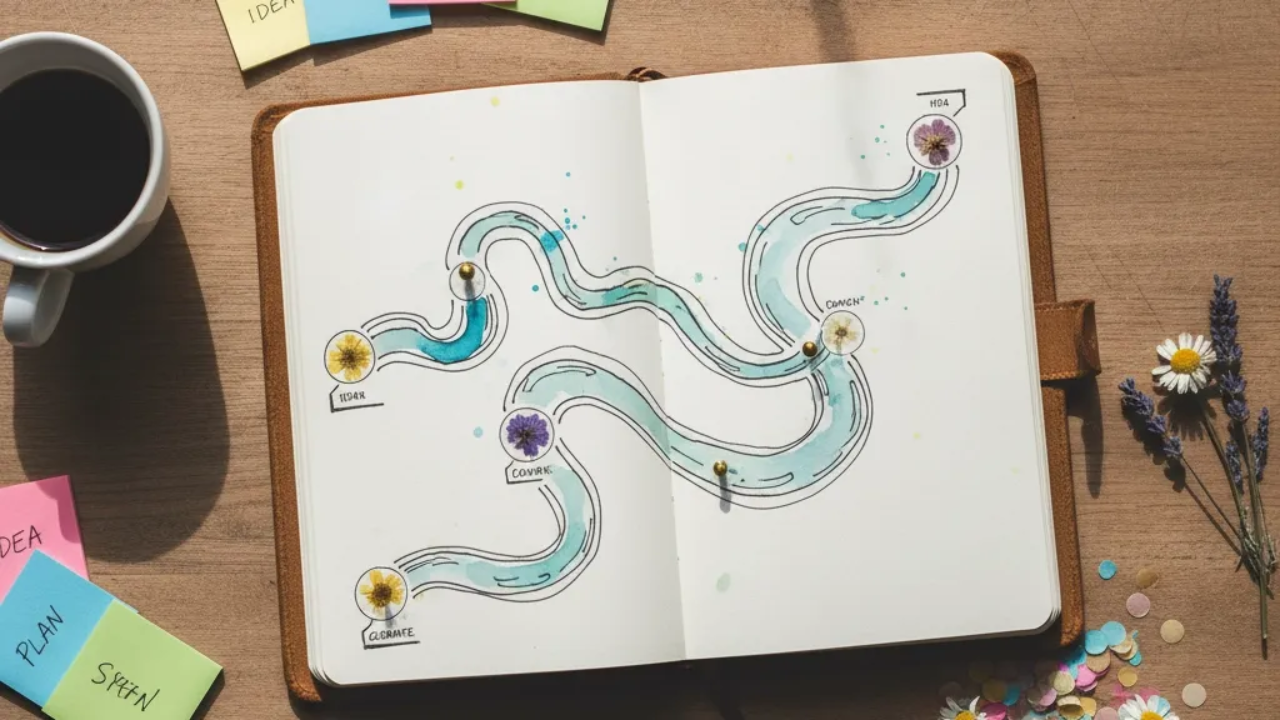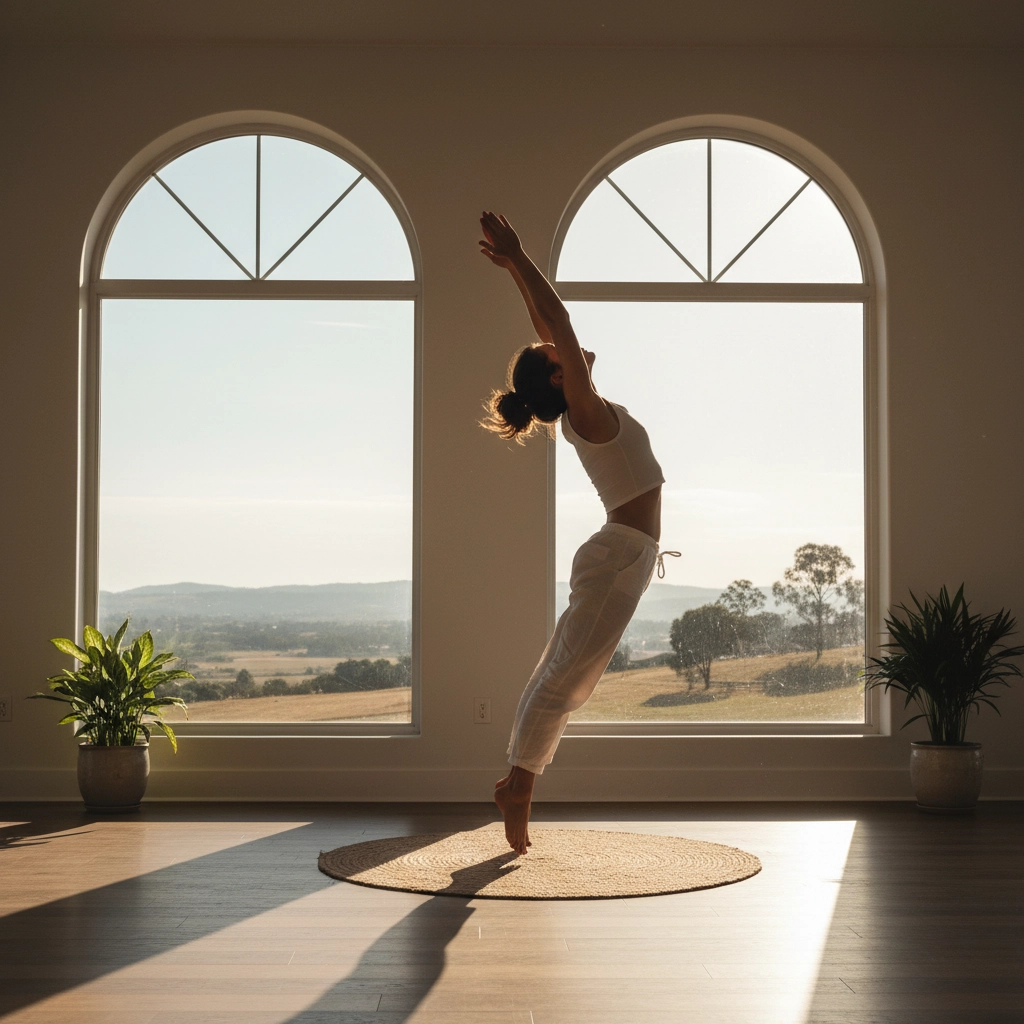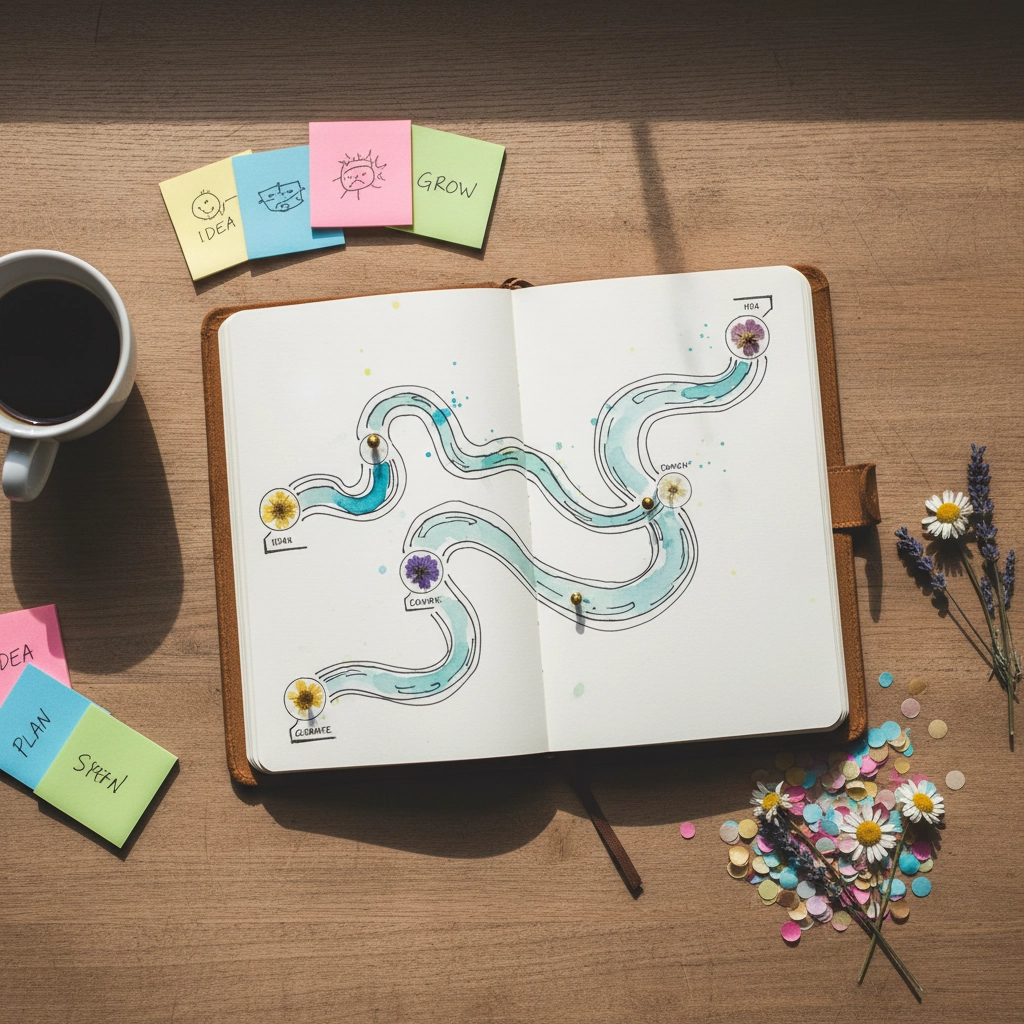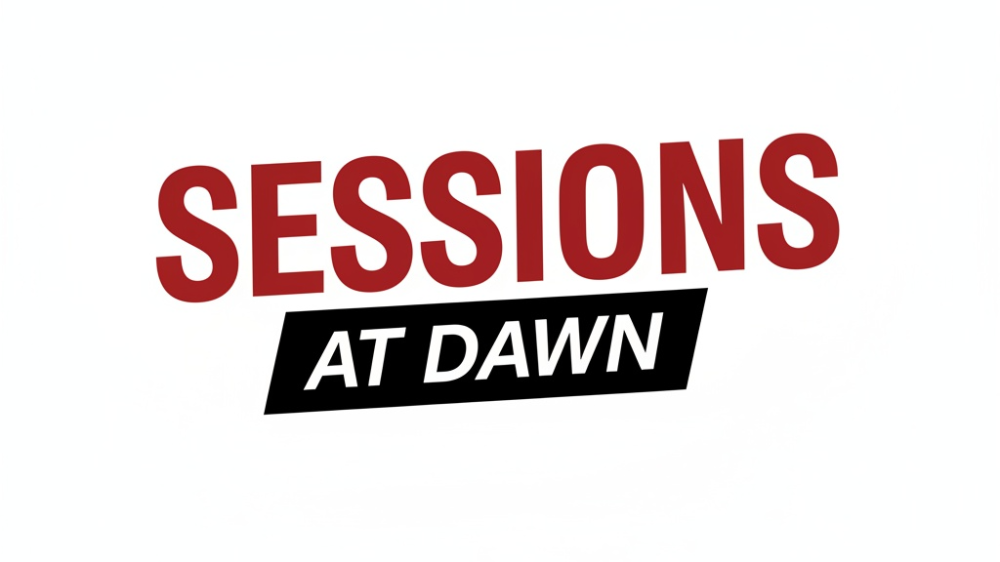Simple Ways to Find Your Footing (And Your Fire) in the Middle of Change
Oct 09, 2025
Change has this annoying habit of showing up uninvited, kicking over your carefully arranged life like a toddler in a china shop. One minute you're cruising along, the next you're standing in the rubble wondering what the hell just happened and whether you'll ever feel steady again.
Here's the thing nobody tells you: that wobbly, off-kilter feeling? It's not a bug in your system, it's a feature. Your discomfort is actually information, and once you stop fighting it and start working with it, finding your footing becomes a lot less mysterious.
Let's talk about some ridiculously simple (but not easy) ways to get your balance back and reignite that fire when everything feels like it's gone sideways.
Start With the Uncomfortable Truth
First things first: stop pretending you're fine when you're not. The fastest way to stay stuck is to bypass the messy reality of where you actually are right now.
Change throws us off balance because our old ways of being don't work anymore, but we haven't figured out the new ones yet. That in-between space? It's supposed to feel weird. You're not broken; you're recalibrating.
Try this: Instead of the usual "I'm fine, everything's great" autopilot response, practice saying one honest sentence about how you're actually feeling. Not a dissertation, just one real thing. "I'm anxious about what comes next." "I miss how things used to be." "I have no idea what I'm doing."

That's it. You're not looking for solutions yet, just acknowledgment. Because here's what's wild: the moment you stop fighting your reality, you create space for something new to emerge.
Get Your Body in the Game
Your mind might be spinning in circles, but your body knows things your brain hasn't figured out yet. When everything feels chaotic, your physical state becomes your secret weapon.
Standing up straight isn't just good posture advice, it's biochemistry. When you change your physical position, you literally change your brain chemistry. Slouched over your laptop in defeat? Your body is sending "I can't handle this" signals to your brain. Stand up, roll your shoulders back, take up some space, suddenly your system gets the memo that you're capable of handling whatever's coming.
This isn't about fake-it-till-you-make-it positivity. It's about using your body as a tool to shift your state from overwhelmed to resourceful. Try it right now. Seriously. Stand up, stretch your arms overhead, take three deep breaths. Notice the difference?
When you're stuck in your head, movement becomes medicine. Walk, dance badly in your kitchen, do jumping jacks, whatever gets your blood flowing and reminds your system that you're alive and capable of change.
Flip the Script on Your Nervous Energy
Here's a plot twist: when you're freaking out about your own life, the fastest way to find your fire again is to stop thinking about yourself for a hot minute.
Anxiety and self-focus go together like wine and poor decisions. The more you spiral about your own situation, the smaller and more powerless you feel. But when you shift your attention to how you can help someone else, something magical happens, you remember who you are beyond your current circumstances.

This isn't about becoming a people-pleasing martyr. It's about accessing the part of you that's generous, capable, and connected to something bigger than your immediate problems. Call a friend who's going through their own rough patch. Help a neighbor with their groceries. Offer genuine encouragement to someone on social media.
When you act from generosity instead of need, you tap into a different energy, one that reminds you that you have value to offer the world, even when everything feels uncertain.
Create Your Own Breadcrumb Trail
Change without direction is just chaos with anxiety. You don't need to know exactly where you're going, but you need to know your next right step.
Instead of trying to figure out your entire future (pressure much?), focus on creating a simple system for measuring progress. What does "better" look like for you in small, observable ways? Maybe it's having one meaningful conversation per week, or spending 10 minutes a day on something that energizes you, or simply getting through difficult days without numbing out completely.
Break your bigger vision into ridiculously small milestones. We're talking so small you can't fail. The goal isn't to impress anyone; it's to build evidence that you're moving forward, even when progress feels invisible.
And here's the key part: celebrate the small wins. Not because you're easily pleased, but because your brain needs proof that change is possible. Every tiny victory rewires your belief system to expect more success instead of more struggle.
Master the Art of Strategic Honesty
One of the sneakiest ways we stay stuck during transitions is by pretending everything's fine when it's clearly not. But there's a difference between toxic oversharing and strategic honesty, knowing when, how, and with whom to be real about what you're experiencing.

Strategic honesty means choosing trusted people who can handle your reality without trying to fix you or make it about them. It means saying "I'm in transition and figuring things out" instead of either pretending everything's perfect or dumping your entire emotional state on anyone who asks how you're doing.
Keep your communication channels open with the people who matter most. Let them know you're navigating some changes and what kind of support would be helpful. Some people are great listeners. Others are better at practical help. Some just need to know you're okay and don't need details.
The goal isn't to become everyone's therapy project, it's to stop carrying the weight of change entirely alone.
Stay Flexible Without Losing Your Standards
Here's where most advice gets it wrong: being adaptable doesn't mean being a doormat or lowering your standards. It means being willing to adjust your methods while staying connected to your values.
Maybe your timeline needs to change. Maybe your approach needs an overhaul. Maybe the opportunity you thought you wanted turns out to be wrong for you. That's not failure, that's new information.
The strongest people during change aren't the ones who never bend; they're the ones who bend without breaking. They stay curious instead of rigid, asking "What is this situation trying to teach me?" instead of "Why is this happening to me?"

When unexpected challenges show up (and they will), treat them like plot twists in a good story instead of evidence that everything is falling apart. Sometimes the detour becomes the journey, and the thing you thought was ruining your plans was actually redirecting you toward something better.
Reignite Your Fire Through Action, Not Inspiration
Here's the real talk nobody wants to hear: you can't think your way back to feeling passionate about your life. Passion isn't something you find lying around waiting for you, it's something you create through engaged action.
Stop waiting to feel ready, inspired, or certain. Those feelings are the result of doing meaningful work, not the prerequisite for it. Start with whatever tiny spark of interest you can find and feed it through action, not analysis.
Maybe you're not sure what lights you up anymore. Fair enough. Try stuff. Volunteer for something that seems interesting. Take a class. Start a creative project. Have conversations with people doing things you're curious about.
The goal isn't to find your "passion" like it's a lost sock, it's to engage with the world in ways that create more energy than they consume. Your fire comes back when you start moving toward what matters to you, not when you figure out what should matter.
The Plot Twist You Didn't See Coming
Here's what nobody tells you about finding your footing during change: the goal isn't to get back to where you were before. The goal is to discover who you're becoming through the process.
Change doesn't just rearrange your circumstances, it reveals parts of yourself you didn't know existed. Your resilience. Your creativity. Your ability to adapt and grow. The person navigating this transition isn't the same person who entered it, and that's exactly the point.
So yes, everything feels uncertain right now. Yes, you're making it up as you go along. Yes, you have no idea if you're doing it "right." Welcome to being human during interesting times.
Your footing isn't something you find: it's something you create, one small step at a time. Your fire isn't something you lose: it's something you tend, with attention and intention and a willingness to begin again.
The ground is shifting under everyone's feet these days. The question isn't whether you'll find perfect stability (spoiler: you won't). The question is whether you'll trust yourself to keep moving forward anyway.
And based on the fact that you're here, reading this, looking for ways to grow through the uncertainty instead of just survive it?
Yeah. You've got this.

